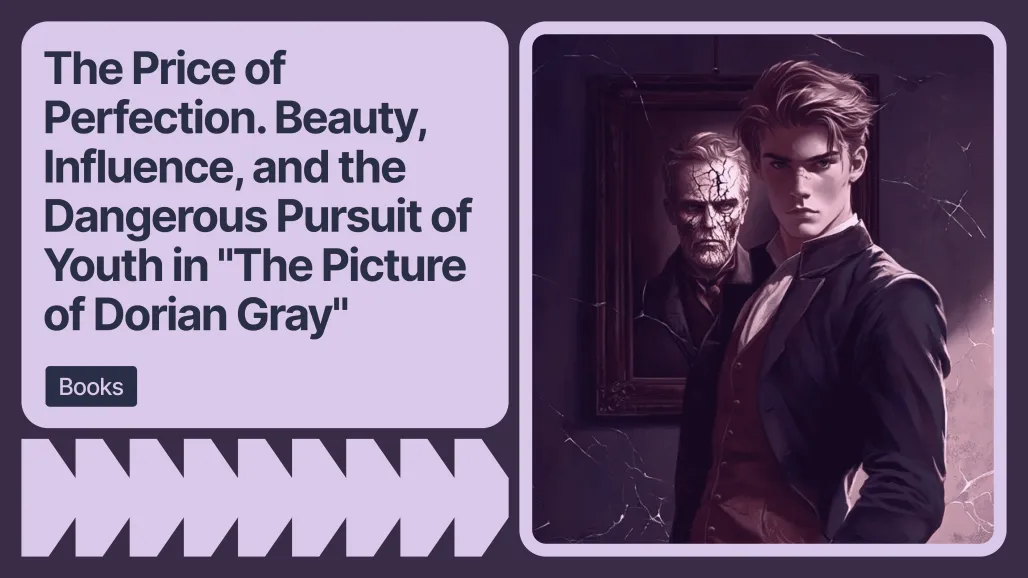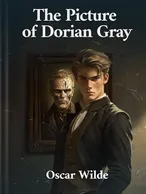The Price of Perfection. Beauty, Influence, and the Dangerous Pursuit of Youth in "The Picture of Dorian Gray"

Oscar Wilde's Dorian Gray warns of the cost of chasing beauty, influence, and image at the expense of integrity and authenticity.
Beauty as Social Currency
The Influence of Society: Image Over Integrity
The Tragedy of the Eternal Selfie
Influence, Persuasion, and the Cost of Conformity
Final Thoughts
In an era where brand image, social perception, and visual aesthetics can define both personal and professional success, Oscar Wilde’s The Picture of Dorian Gray remains a startlingly relevant narrative. Published in 1890, Wilde’s only novel is a chilling examination of the consequences of placing appearance above ethics, and influence above authenticity.
Through the tragic figure of Dorian Gray, Wilde critiques a society—and a psychology—that idolizes youth, fears aging, and rewards superficial charm over true character. This article unpacks how Wilde’s vision serves as a warning for today’s image-driven culture, where the curated self often hides the corrupted soul.
Beauty as Social Currency
From the moment Dorian is introduced, Wilde makes it clear that his beauty is both his greatest gift and his greatest vulnerability. In a world that “worships youth,” Dorian becomes consumed by the fear of losing it. His wish that the portrait would age instead of him is granted, and from that moment, his life begins to unravel.

These words, spoken by the influential Lord Henry, echo the cultural obsession with youth and visual perfection—a mentality still seen today in social media filters, anti-aging industries, and celebrity culture. In the novel, Dorian’s beauty becomes a shield and a weapon. It grants him access, admiration, and immunity. But the more he leans on it, the less accountable he becomes.

This line encapsulates Dorian’s rationale for discarding morality in favor of personal pleasure—justifying his actions by a twisted sense of self-harmony, one that excludes empathy, integrity, and consequence.
The Influence of Society: Image Over Integrity
Dorian is not born corrupt. He is shaped by influence, especially by Lord Henry—a man who speaks in paradoxes and lives by the idea that nothing matters except experience, beauty, and pleasure. But Wilde’s deeper critique is directed at the society that enables this worldview, one that prefers a charming face over a challenging truth.

Wilde’s satire exposes a culture where appearance not only matters—it dominates. Dorian quickly learns that being beautiful means being untouchable, even when those around him suffer because of his actions. He becomes a symbol of what happens when society incentivizes the mask rather than the man.
This is not unlike modern dynamics, where public figures and brands often prioritize perception over principle, and where being “canceled” for appearance’s sake is feared more than accountability for real misdeeds.
The Tragedy of the Eternal Selfie
The most iconic element of the novel—the portrait—serves as a literal manifestation of Dorian's inner self. As he descends into moral ruin, the portrait grows monstrous, while he remains eternally youthful. It’s a haunting metaphor for our curated digital identities, where the Instagram version of life may remain glowing while the offline reality deteriorates.

Wilde brilliantly visualizes the psychological cost of maintaining an immaculate image. Dorian becomes obsessed with hiding the truth. He isolates himself, loses trust in others, and becomes paranoid. Even as he continues to be adored in public, he lives in fear that someone might discover the secret his portrait hides in the locked room upstairs.

Wilde acknowledges that this conflict between the inner self and the outer persona is universal. But when the outer self is prioritized entirely—when we allow brand or beauty to substitute for character—we risk letting the worst in us take over.
Influence, Persuasion, and the Cost of Conformity
While Dorian is undoubtedly a victim of his own choices, Wilde shows that he is also a product of influence. Lord Henry’s ideas shape him, and the social circles that admire him do little to challenge his behavior. Society, in Wilde’s view, doesn't just fail to check corruption—it rewards it, as long as it’s beautiful and well-dressed.

This hedonistic mantra, preached by Lord Henry, is seductive because it mirrors the voice of modern culture's relentless pursuit of pleasure and performance. Whether in consumerism, entertainment, or personal branding, the pressure to be dazzling is constant—and dangerous when left unchecked.
Final Thoughts
The Picture of Dorian Gray is more than a horror story about a man and a cursed painting—it is a mirror for modern life. It challenges us to ask:
- What values are we promoting when we elevate charm over character?
- How often do we reward the polished mask instead of the honest face?
- In our effort to appear flawless, are we erasing what makes us real?

In business, in leadership, and in life, this line remains a powerful critique. The most effective and enduring reputations are built not on perfection, but on authenticity, accountability, and the courage to let the inside match the outside.
📘 Wilde's warning is clear: When image becomes everything, everything else—truth, trust, and ultimately the self—is lost.
